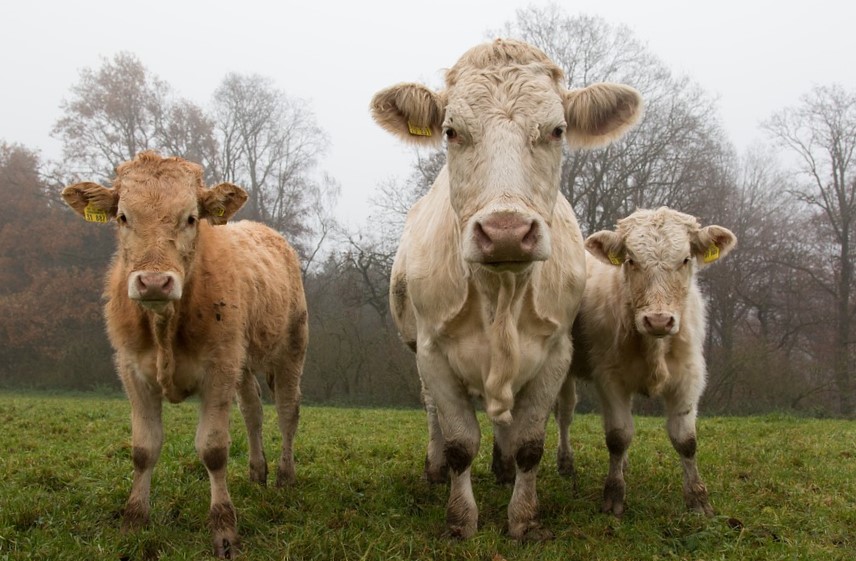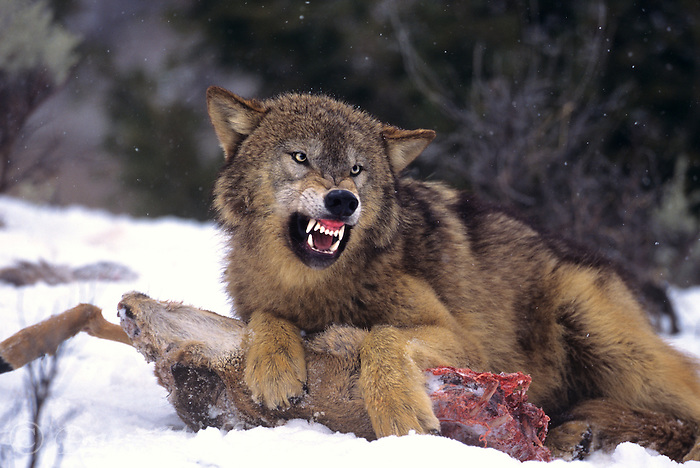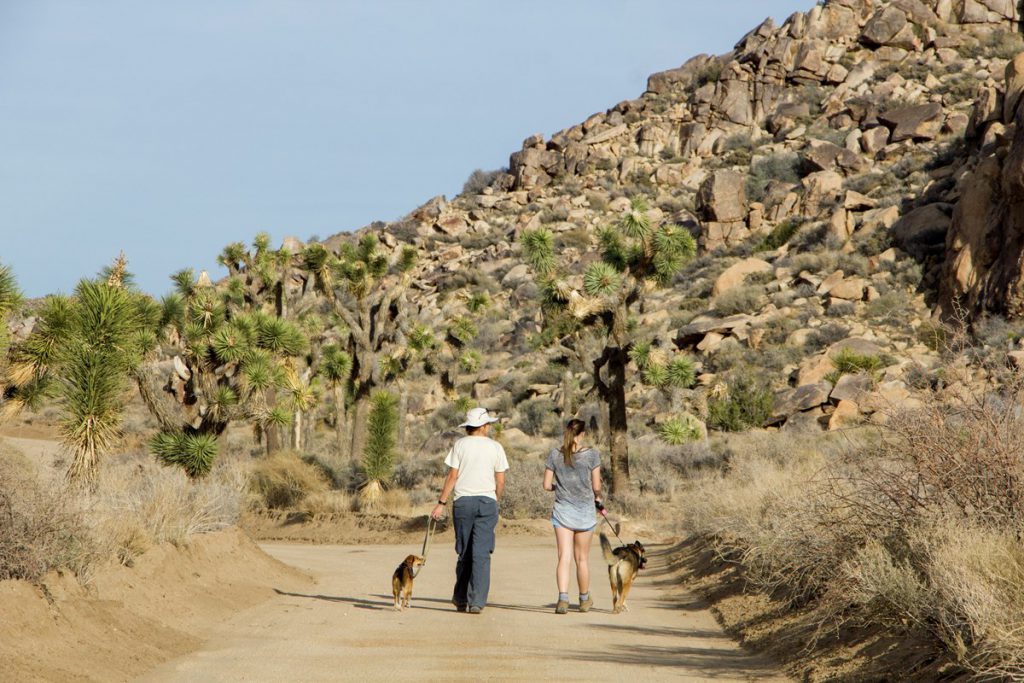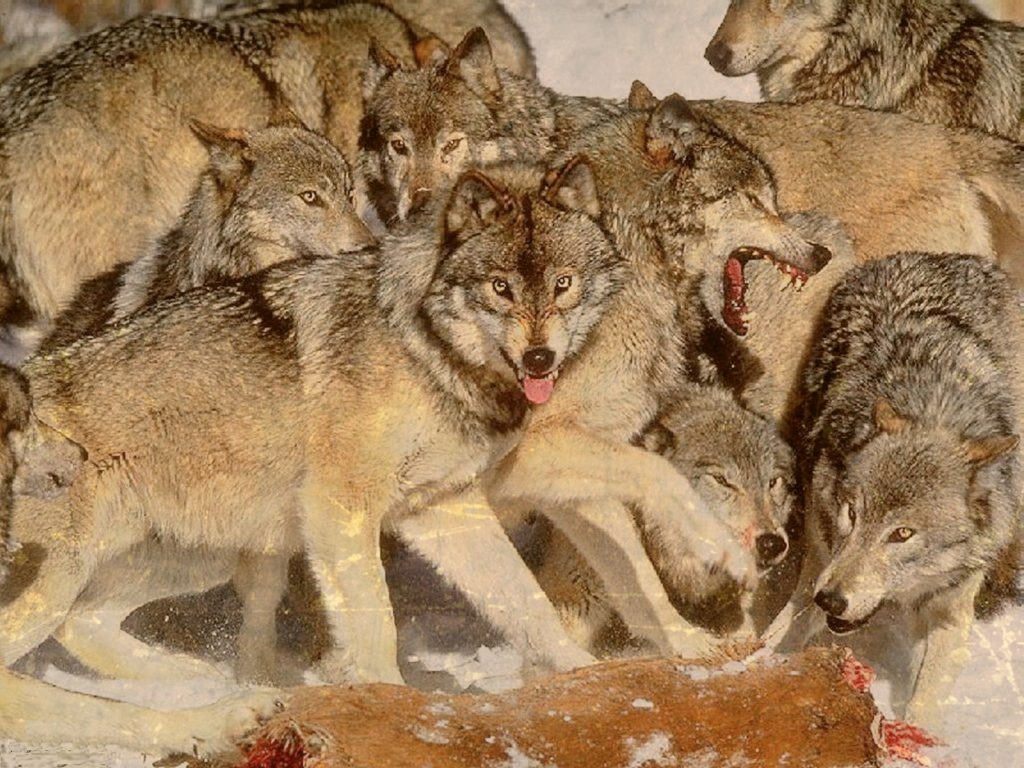In the comment and review hearing, proponents said the goal of the initiative is to raise the quality of life of all domesticated animals in the state by amending the statutes to ensure animals are ”treated with more dignity” by closing what they called a “loophole in the definition of a sexual act with an animal” and requiring livestock to reach 25 percent of the natural lifespan prior to slaughter.
Rachel Gabel
PAUSE: Ballot initiative to criminalize husbandry practices would cost consumers, limit food availability
A ballot initiative proposed, currently known as Protect Animals from Unnecessary Suffering and Exploitation (PAUSE), is awaiting an appearance before the title board after being filed with the Colorado Secretary of State. Proponents Alexander Sage of Broomfield, and Brent Johannes of Boulder, penned the proposed changes to the criminal cruelty to animal statutes. As written, the ballot initiative would include livestock and would criminalize some actions that are currently accepted animal husbandry practices.
In the comment and review hearing, proponents said the goal of the initiative is to raise the quality of life of all domesticated animals in the state by amending the statutes to ensure animals are ”treated with more dignity” by closing what they called a “loophole in the definition of a sexual act with an animal” and requiring livestock to reach 25 percent of the natural lifespan prior to slaughter.
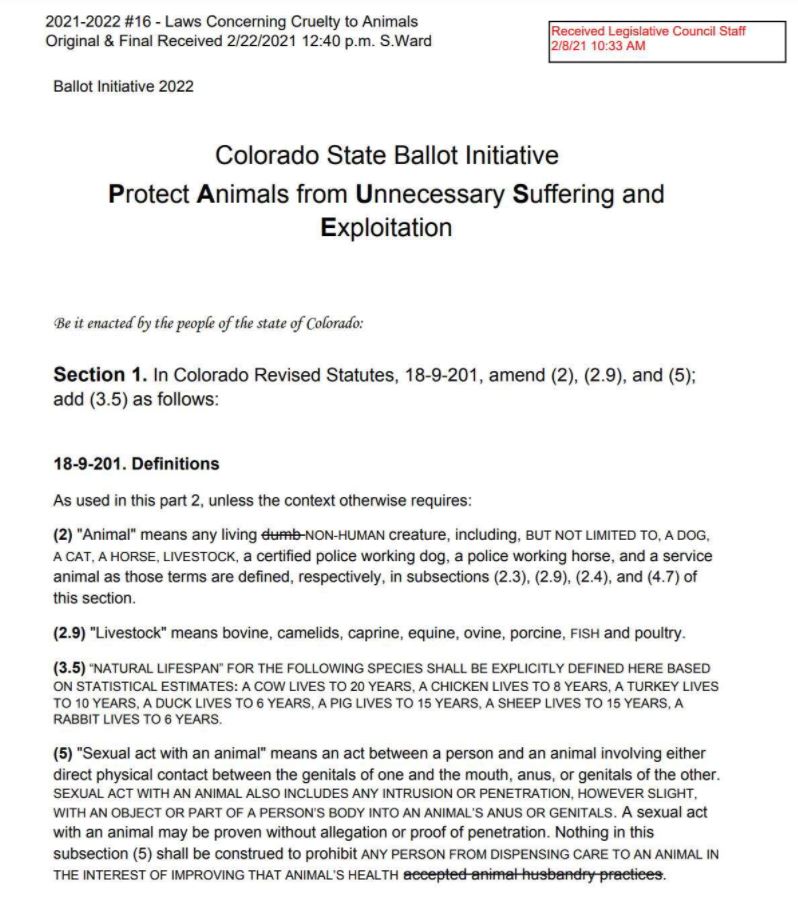
The proposed initiative includes livestock in the updated definition of animals and defines natural lifespans as 20 years for cattle; eight years for chickens; 10 years for turkeys; six years for ducks; 15 years for pigs; 15 years for sheep; and six years for rabbits.
In the hearing, proponents admitted the requirement to slaughter only livestock that have lived 25 percent of their natural lifespan would criminalize lamb and veal, but said it did not criminalize the sale of those products slaughtered in another state.
During the hearing, Jennifer Ritter from the Office of Legislative Legal Services told proponents the proposed language would criminalize numerous practices most ranchers and farmers engage in, as well as affect industry rules and accepted practices, and asked if that is the intent.
Sage said their intent is “that the standard of care of all animals is increased regardless of the species: dog, cat, cow, or pig.”
According to the proposed initiative, any intrusion or penetration with an object or part of a person’s body would criminalize accepted animal husbandry practices including artificial insemination, pregnancy checking, semen collection, and fertility testing sires. As for assisting during a difficult parturition, the language is vague but does allow for a person to dispense care in the interest of improving that animal’s life.
FOOLHARDY AT BEST
According to Shawn Martini, Colorado Farm Bureau’s vice president of advocacy, criminalizing the very tools and processes that livestock producers have used to increase efficiencies to meet consumer demand in providing a safe, affordable, and abundant food supply and minimizing the industry’s climate footprint, is foolhardy at best.
“Anything you do, even if it is a generally accepted practice endorsed by the American Veterinary Medicine Association, would still make you a criminal animal abuser,” Martini said.
As for slaughter according to the proposal, proponents retained the language specifying “accepted agricultural animal husbandry practices” so long as the animal has lived 25 percent of their natural lifespan as defined above and is slaughtered in such a way that the animal does not needlessly suffer.
If this were to make it to the ballot, Martini said, it would again be a case of neglecting to accept any input from the stakeholders affected by all sectors of the livestock industry and would erase billions of dollars from the state’s economy.
We respect your reading experience, and have refrained from putting up a paywall and obnoxious advertisements, which means that we get by on small donations from people like you. We’re not asking for much, but any amount that you can give goes a long way to securing a better future for the people who make America great.
[paypal_donation_button]
For as little as $1 you can support Free Range Report, and it takes only a moment.
